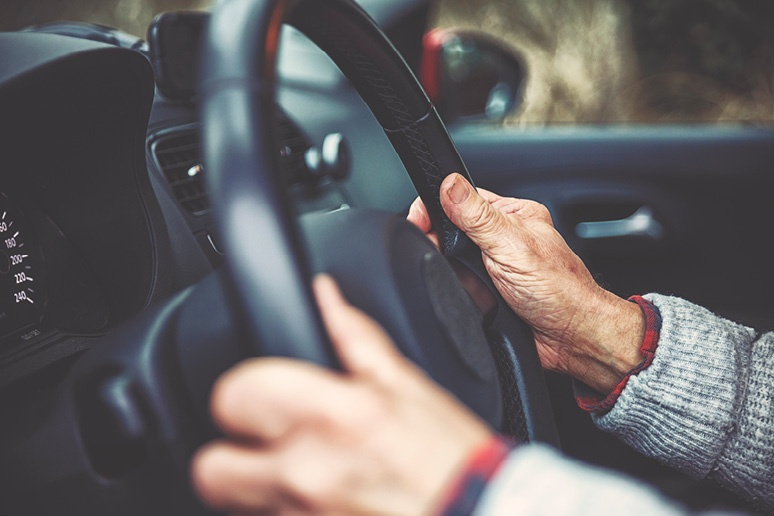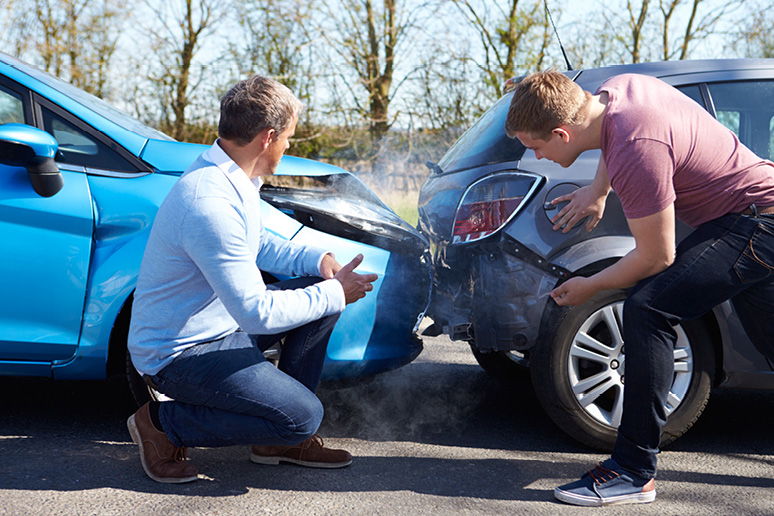There were nearly 42 million licensed drivers ages 65 and older in the U.S. in 2016, which is 56 percent more older drivers than were behind the wheel in 1999. According to the Centers for Disease Control and Prevention (CDC), 290,000 older drivers visited the emergency department and 7,400 were killed due to motor vehicle crashes.
The age at which driving becomes unsafe varies widely. Some people have to modify driving habits in their 60s, while others drive safely until age 85 and beyond. When it’s time to hand over the car keys, younger family members frequently find themselves in the uncomfortable position of breaking the news to loved ones. Driving represents freedom and independence, both of which can be extremely difficult to give up. Knowing how to assess your elderly loved one’s driving habits and how to approach the issue when the time comes can be of immense help.
The risk of being involved in a crash increases as adults get older, but there are steps that all of us can take to protect our elderly loved ones, and our selves, on the nation’s roadways.
Warning signs of unsafe driving
If you are unsure about your elderly loved one’s ability to continue driving safely, the tips below may help you determine if it’s time to speak up.
- Check for changes in auto insurance rates. A sudden spike in rates may indicate an undisclosed problem.
- Is there any new damage to the vehicle? Check for dents, dings, or nicks.
- Does your elderly relative seem to have a fear of driving at night? If your loved one is reluctant to drive after dark, it could be a sign of vision problems.
- Have they exhibited any behavioral changes? Ride with your loved one to assess their driving behavior. Do they seem comfortable behind the wheel or are they constantly fidgeting and moving in their seat? Do they appear tense? Are they easily distracted? Do they seem fully aware of stop signs, traffic lights, and pedestrians? Do they tailgate or drift into other lanes?
- Talk to your loved one’s friends about whether they have noticed any problems.
If your loved one can no longer drive safely, it’s important to speak up. Put some thought into how you will approach the subject first. When faced with losing their license, people are likely to become defensive, angry, sad, or all three. Explain that you understand your loved one’s frustrations and that you can work together to create a transportation plan. To alleviate some of the stress, research bus routes and schedules and create a “taxi fund” with money saved by not using gas. Offer to drive your loved one to the store, appointments, and social outings whenever possible.
Statistics about elderly driving
According to AAA, seniors are often safer drivers due to their tendency to wear a seat belt, obey speed limits, and avoid drinking and driving. However, it cannot be denied that the risk of accidents increases as we age.
- Approximately 80 percent of people ages 70 and over suffer from arthritis, which can make it difficult to comfortably and quickly turn, flex, or twist.
- Most seniors have less flexibility and weaker muscles than their younger counterparts, potentially making it a challenge to turn the steering wheel, and even to fully depress the brakes.
- Among people age 65 and older, more than two-thirds report using at least one medication, many of which can impact driving performance.
- At age 75, fatal crash rates increase, rising even more sharply after age 80. However, this is primarily due to the fact that older drivers may be frailer, and may have existing medical conditions. It is not due to a higher risk of crashing.
The fatality rate of drivers age 65 and over is 17 times higher than that of their younger counterparts. Again, this is due to fragility, not higher crash risk.
Contact a motor vehicle accident attorney today
As tempting as it may be to procrastinate and continue “putting off” the uncomfortable conversation for another day, know that your delay may ultimately result in harm to your loved one or another person. An experienced motor vehicle accident attorney can help you determine how to proceed if your loved one has been involved in a crash.
 By Amy Carst,
By Amy Carst, 

